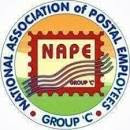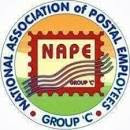ASPO's:- Para 7.6.7 :- Upgradation for the post of Assistant Superintendent of Post Offices (ASPOs) on par with Assistant Director (Marketing), who is in the pay scale of Rs.7500 - 12000 has been demanded. The Commission has addressed this demand in para 7.6.14.
Inspectors:- Para 7.6.14. Postal Inspectors in Department of Posts have demanded a higher pay scale of Rs.6500-10500 on par with Inspectors and analogous posts in CBDT/CBEC as well as Assistants of Central Secretariat Services (CSS) on the ground that they are recruited through the same examinatio. The Commission is recommending the merger of pre-revised pay scale of Rs.500-9000 and Rs..6500-10500 which will automatically bring Inspector (Posts) on par with Assistants in CSS/Inspectors and analogous posts in CBDT and CBEC. With this upgradation, Inspector (Posts) shall come to lie in an identical pay scale as that of their promotion post of Assistant Superintendent (Posts) (ASPOs). ASPOs shall, acordingly, be placed in the next hihger pay scale of Rs..7450-11500 corresponding to the revised pay band PB-2 of Rs.8700-34800 along with grde pay of Rs.4600. The ne4xt hihger post in the hierachy, that of Superintendent (Post) , which is also a promotion post of ASPOs, shall be placed in the pay scale of Rs.7500-12000 corresponding to the revised pay band PB-2 of Rs.8700-34800 along with grade pay of Rs.4800. Parity exists bedtween the posts of Inspector(Posts) and Inspectors in Mail Motor Service (MMS). This parity would need to be maintained and Assistant Manager, Mail Motor Sertvice shall be placed in the hihger grade of Rs.7450-11500 whose corresponding replacement pay and and grade pay is PB-2 of Rs.8700-34800 along with a grade pay of Rs.4600. Similarly, Manager, Mail Motor Service shall be placed in PB-2 pay band of Rs.8700-34800 along with a grade pay of Rs.4800 which corresponds to the pre-revised pay scale of Rs.7500-12000.
Lower Selection Grade, Higher Selection Grade II & I:- Para 7...6.15:-Higher pay scales have been sought for LSG (lower Selection GRade), HSG II (Higher Selection Grade) and HSG-I officers. No anomaly exists in the present pay structure of these posts. However, on account of the proposed restructuring of pay bands, a hihger grade would need to be extended to HSG-I. The post of HSG-I should, therefore, be placed in the revised pay band PB-2 of Rs.8700-34800 along with grade pay of Rs.4600 corresponding to the pre-revised scale of Rs.7450-11500. The other postrs shall be extended only the corresponding replacement pay band and grade pay.
Dispensaries in Dept. of Posts Para 7.6.16:- Department of Posts presently runs departmental Dispensaries in some cities and towns. Th e employees of Postal department posted in these cities are not eligible for CGHS facilities. Demands hav eben received that these employees should also be given the option for being covered under the CGHS, parricularly after thay have retired. The issue was discussed with Department of posts which has stated that a proposal was sent to Ministry of Health and Family Welfare for merging these Dispensaries with CGHS, but no action has been taken so far. There is strong merit in the proposal made by the Department. The Commission, therefore, recommends that all the Dispensaries presently being run in Department of Posts should immediately be merged with CGHS and all postal employees be covered under the CGHS scheme, whereever available. This facility should also be extended to the retired postal employees.
Postman and Mail Guard Para 7.6.17 :- Historical parityk has existed between the post of Constable in CPOs and the analogous post of Mail Guard in Railway Mail Service and Postman in Department of Posts. The Commission has recommended that all the Constables in CPOs shall be placed in the revised PB-1 of Rs.4860-20200 along with grade pay or Rs.2000/. The Postman in Department of Posts and the analogous post of Mail Guard in Railway Mail Service should also be similarly upgraded and placed in the pay scale of Rs.3200-4900 coressponding to the revised pay band PB-1 of Rs.4860-20200 along with grade pay of Rs.2000.
P.O & RMS Acountant cadre: Para 7.6.19:- Acountants of this cadre have demanded parity with organised ACounts cadres. No functional justification exists for the same. The prity with organized ACounts cadres is, terefore, not recommended. The special allowance of Rs.180 presently given to them may be doubled.
System Admiminstrators & Marketing Executives Para 7.6.21:- Postal Assistants assigned the jobs of System Administrators & Marketing Executives have demanded creation of a new cadre with higher pay scales. Creation of a new cadre in their case is not functionally justified. The Commission, in any case, is not looking into demands relating to individual cadre reviews. Status-quo may, therefore need to be maintainted especially because the existing scenario allows usae of available manpower for need based multifarious functions.
Dearness Allowance Para 4.1.14:- The Commission recommends that the AICPI (IW) wit base 2001 may,henceforth, be used for the purpose of calculating DA till it gets revised.
Para 4.1.19:- DA may continue to be sanctikoned twice a year as on 1st January and 1st Juoly payable with the salary of March and Septemener respectively for administrative convenience with inflation neutralisation being maintained at 100% at all levels.
C C A Para 4.2.8:- The Commission recommends abolition of City Compensatory Allowance.
Transport Allowance: Para 4.2..43:- Employees drawing grade pay of Rs.5400 & above and posts in the apex scale and Cabinet secy. equivalent: Rs.3200 +_ DA thereon in A-1/A Class City and Rs.1600 +DA in other places. Employees drawing grade pay of Rs.4200 to 4800 :- Rs.1600 +_DA thereon in A-1/A Class City and Rs.800 +DA thereon in respect of other places. Employees drawing grade pay-below Rs.4200 :- Rs.400 + DA thereon in respect of A-1 & A Class City and Rs.300 + DA thereon in respect of other places.
Para 4.2.44 Similarly, the existing condition which prohibits grant of Transport Allowance to the employees who have been profvided with official accommodation within one Kilomeer of the office should also be removed because this creats an articicial distinction between the employees living in private acommodation within one kilometer of the office vis-a-vis those living within one kilometer of the office in Govt. accomodation.
* Please Don't Spam Here. All the Comments are Reviewed by Admin.
Post a Comment
Featured Post
Top Post Ad
Below Post Ad
SIVAJI VASIREDDY

SECRETARY GENERAL, FNPO, CHQ New Delhi, & LSG Accountant, Sattenapalle HO - 522403, email: sivajivasireddy@gmail.com Mobile:9959538622
Total visitors till now
Search This Blog
Archive
Affiliated Unions
About Me
.jpeg)
- NAPE Group-C
- The NUPE Group-C was formed by Late Sri K.Ramamurti in 1968 then D.Kishan Rao was the General Secretary and now Vasireddy Sivaji is the present General Secretary
Regular Followers
Translate to Other Languages
Footer Copyright
Design by - Blogger Templates | Distributed by CopyBloggerThemes.com

.jpeg)
.jpeg)


